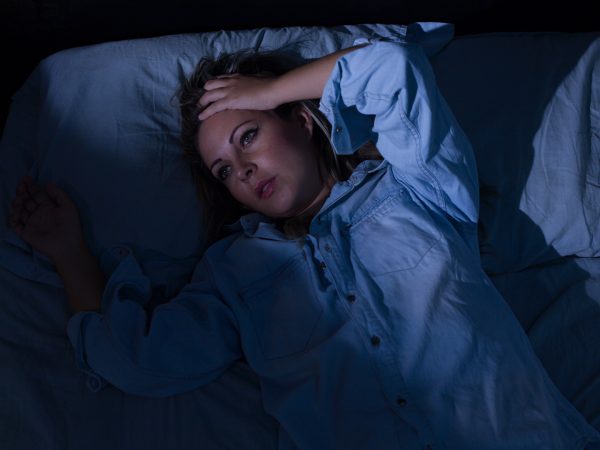Does Alcohol Contribute To Insomnia?
I am a moderate drinker and I also suffer from insomnia. Could there be a connection?
Andrew Weil, M.D. | July 6, 2021

Alcohol is a central nervous system depressant, which can come as a surprise to those who use it as a mood booster and “social lubricant” to help ease awkwardness at events. (There’s a reason we refer to those after-work get-togethers as “happy hours.”) The short-term effects of alcohol make us feel relaxed and help us calm down, which is no doubt why alcohol sales and consumption increased dramatically in 2020 as people used it to de-stress during the Covid-19 pandemic.
Depending on the amount consumed, the habitual level of consumption, and the person’s body mass, the relaxing effects of alcohol can actually make it easier to fall asleep. A body and brain already relaxed from alcohol doesn’t need the full length of a typical Stage 1 of the sleep cycle, which transitions us from awake to sleep states. After that, however, alcohol disrupts later sleep stages as it continues to metabolize. So while a drink or two in the evening may make it easier to fall asleep, it often makes it difficult to stay asleep. It also disrupts the quality of sleep throughout the sleep cycles, including the critical REM (rapid-eye movement) stage.
The first three stages of sleep take us into deeper and deeper states of slumber, and after about 90 minutes of that process we enter REM sleep, the all-important stage in which we dream, consolidate memories, and organize information. We cycle through those four stages throughout the night, with each REM stage longer than the one in the previous cycle. Alcohol disrupts that and makes it difficult to stay asleep for successive cycles. Not only is that bad for the brain, it also has a negative effect on physical and cognitive function the next day, when insomniacs often report daytime sleepiness and fogginess.
While we may associate heavy drinking with college students, older adults may binge drink (four or more drinks in one sitting) as well. Older adults also report insomnia more frequently than younger people, and one study found a correlation between binge drinking and insomnia in adults 50 and over. So if insomnia is plaguing you and you consume four or more drinks at a time, simply cutting back may be beneficial.
There have been many, many studies over the years investigating the health effects of alcohol, both positive and negative. It has been shown to raise the risk of some cancers, and it has also been shown to reduce the risk of heart disease. I believe that an occasional drink may do you some good – in terms of mood, relaxation, and heart health – but overdoing it is no doubt harmful. If you suffer from insomnia, especially the middle-of-the-night variety that keeps you from getting a full night’s sleep, I would advise cutting back on alcohol to see if that helps.
Andrew Weil, M.D.
Sources:
Sleep, Sleepiness, and Alcohol Use
pubs.niaaa.nih.gov/publications/arh25-2/101-109.htm
Alcohol and Sleep
https://www.sleepfoundation.org/nutrition/alcohol-and-sleep
What Happens When You Sleep
www.sleepfoundation.org/how-sleep-works/what-happens-when-you-sleep
Pollard MS, Tucker JS, Green HD. Changes in Adult Alcohol Use and Consequences During the COVID-19 Pandemic in the US. JAMA Netw Open. 2020;3(9):e2022942. doi:10.1001/jamanetworkopen.2020.22942
jamanetwork.com/journals/jamanetworkopen/fullarticle/2770975
Grossman ER, Benjamin-Neelon SE, Sonnenschein S. Alcohol Consumption during the COVID-19 Pandemic: A Cross-Sectional Survey of US Adults. Int J Environ Res Public Health. 2020;17(24):9189. Published 2020 Dec 9. doi:10.3390/ijerph17249189
www.ncbi.nlm.nih.gov/pmc/articles/PMC7763183/
www.sleepfoundation.org/nutrition/alcohol-and-sleep
www.ncbi.nlm.nih.gov/pmc/articles/PMC5991956
Canham SL, Kaufmann CN, Mauro PM, Mojtabai R, Spira AP. Binge drinking and insomnia in middle-aged and older adults: the Health and Retirement Study. Int J Geriatr Psychiatry. 2015 Mar;30(3):284-91. doi: 10.1002/gps.4139. Epub 2014 May 5. PMID: 24798772; PMCID: PMC4221579.
pubmed.ncbi.nlm.nih.gov/24798772/









